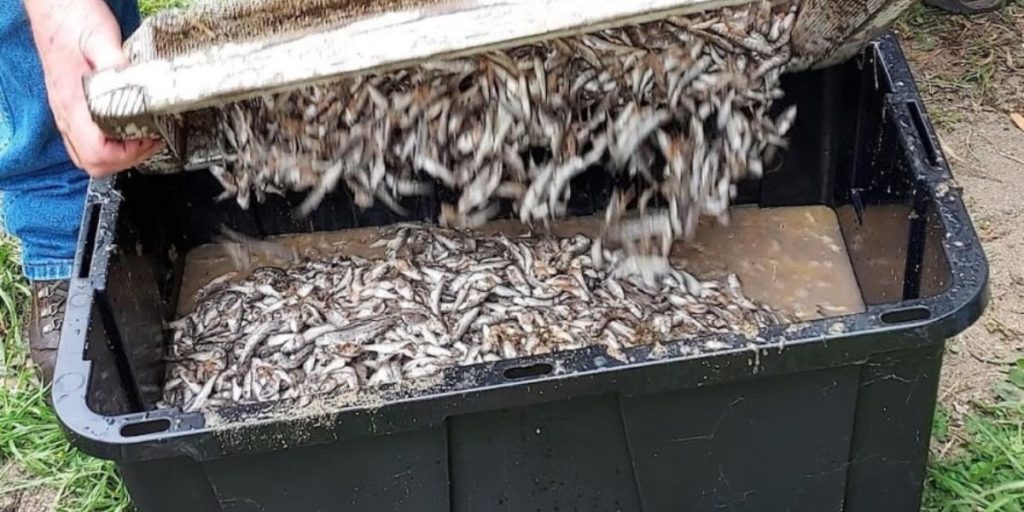An Oregon man is facing many charges after dumping bleach into a tank at a Douglas County hatchery, killing approximately 18,000 baby Chinook salmon, according to state and local officials.
In a statement reporting the arrest of Joshua Heckathorn, 20, of Gardiner, the Oregon Department of Fish and Wildlife (ODFW) described the poisoning of thousands of protected species fish as a “significant poaching incident.” The fish were murdered at a volunteer-operated hatchery.
The investigation began on April 22 when Douglas County Sheriff’s Office (DCSO) deputies responded to a call that someone “forcibly made entry into the hatchery building” and poured a chemical substance into one of the rearing ponds, killing thousands of pre-smolt Chinook salmon, according to ODFW.
The next day, around 6:30 p.m., a DCSO deputy patrolling the area noticed a man in the hatchery, “behind the locked gate and no trespassing signs.” According to investigators, the individual, identified as Heckathorn, was questioned on the scene and “admitted to trespassing on the property, entering a storage location, and handling the chemical bottle.”

Heckathorn was arrested and put into Douglas County Jail on counts of burglary, criminal trespassing, and criminal mischief. Authorities said poaching charges are likely to be added.
Due to the large number of fish destroyed, DCSO is collaborating with the Oregon State Police (OSP) Fish and Wildlife Division to “address both vandalism on the property and a significant poaching incident,” OSP Sergeant Levi Harris stated in a statement.
“Poaching charges will include Unlawful Taking Chinook Salmon for 17,890 fish, which raised the charge to a Class C felony,” Harris stated in a statement. “In addition, Heckathorn faces accusations of Making a Toxic Substance Available to Wildlife, a Class A Misdemeanor, and Criminal Mischief 1st Degree (damaging or destroying property of another in excess of $1,000). Additional penalties might include a lifetime angling license restriction and damage suits for illegal animal kills.”
The maximum civil penalty in the state for illegally catching or killing a single Chinook salmon is a $750 fine.
“Courts have the authority to multiply that amount by the number of fish taken, with a judgment in this case potentially raising the amount to over $13 million,” Harris said, adding that while the fines are unlikely to reach that level, the incident is a significant loss for the Gardiner Reedsport Winchester Bay Salmon Trout Enhancement Program (STEP).
“The killing of these fish is a real blow to the STEP Program volunteers, ODFW, fishermen, and the community as a whole,” Harris said in a statement. “In my 25 years as a game warden, this is one of the most senseless acts I have seen.”
The Gardiner Reedsport Winchester Bay STEP hatchery is maintained by volunteers who raise and care for roughly 200,000 fish each year before releasing them into the Umpqua River estuary, according to the organization’s website. The poisoned salmon were scheduled to be released in June as part of a state program established by the Oregon legislature in 1981 to “rehabilitate and improve stream habitat and natural fish stocks.”
Deborah Yates, president of the STEP program, said the hatchery volunteers are still processing what happened. She stated that volunteers have spent hundreds of hours caring for the fish, adding, “It’s an incredible time investment, and they mean a lot to people.”
“You get attached to those fish,” Yates explained. “When nature does something, it crushes. But it’s natural, and it happens. However, when someone comes in and does something like this, it’s difficult to comprehend. We’ve spent so much time with those fish, and it doesn’t make sense for someone to come in and kill them so casually.”